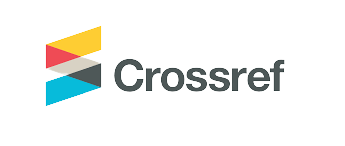Improving Understanding of Fiqh of Worship through Practice at State Junior High School 2 Kotabumi
Keywords:
Learning Fiqh Worship, Direct Practice, Understanding Religion, Madrasah Ibtidaiyah, Islamic Religious EducationAbstract
This research aims to find out how the application of direct practice in learning Islamic jurisprudence at Madrasah Tsanawiyah Negeri 2 can improve students' understanding of Islamic Islamic jurisprudence material. Learning the jurisprudence of worship, which includes procedures for prayer, zakat, fasting and other acts of worship, is often a challenge for students to understand in depth, because it is generally taught theoretically. Therefore, this research highlights the importance of practice-based learning models in increasing students' understanding of the jurisprudence of worship. The method used in this research is a qualitative method with a case study approach. Data was collected through classroom observations, interviews with fiqh teachers, as well as tests before and after the implementation of religious practices. The results of the research show that learning the jurisprudence of worship which is carried out using a direct practical approach, such as simulating congregational prayers, implementing zakat, and other worship exercises, can increase students' understanding of the correct procedures for worship. In addition, direct practice helps students to better understand the application of fiqh in everyday life. This research contributes to developing a more effective Islamic jurisprudence learning model, by utilizing practical methods to increase students' understanding of religion. It is hoped that the results of this research can become a reference for other Islamic educational institutions in optimizing the learning of Islamic jurisprudence at the madrasah level.
References
Agustina, A., Suwandewi, A., & Tunggal, T. (2022). Sisi Edukatif Pendidikan Islam Dan Kebermaknaan Nilai Sehat Masa Pandemi Covid-19 Di Kalimantan Selatan. JIS: Journal Islamic …, 1, 99–105. Retrieved from http://qjurnal.my.id/index.php/jis/article/view/181
Ainiyah, Q., & Rahayu, D. (2023). Dampak Implementasi Pembelajaran Fiqih Terhadap Kedisiplinan Sholat Siswa MTs Ar-Rahman Nglaban Diwek Jombang. Irsyaduna: Jurnal Studi Kemahasiswaaan, 3(3), 310–318. https://doi.org/10.54437/irsyaduna.v3i3.1348
Akhirudin, K. (2015). Lembaga Pendidikan Islam di Nusantara. Jurnal Tarbiya, 1(25), 195–219.
Al Maliki, M., Hilmy, A., Muslimin, J., Kamarusdiana, K., Asmawi, A., & Asriati, A. (2021). The Fiqh of Pandemic: The Arguments and Practices of Worship at the Al Akbar National Mosque in Surabaya. https://doi.org/10.4108/eai.20-10-2020.2305150
Alfina, F. T., Mustofa, A. N., & Setiawan, D. (2023). The Effect of Infographic Media Assisted by Aural Text on Improving Understanding of the Fiqh of Worship in Elementary School Students. Jurnal Penelitian Pendidikan, 40(1), 34–43. https://doi.org/10.15294/jpp.v40i1.45537
Amrizal, M. A., Fuad, N., & Karnati, N. (2022). Manajemen Pembinaan Akhlak di Pesantren. Jurnal Basicedu, 6(3), 3602–3612. https://doi.org/10.31004/basicedu.v6i3.2706
Fauzan, I., & Muslimin. (2018). Efektifitas Metode Sorogan dalam Meningkatkan Minat Belajar Santri…. Jurnal Intelektual: Jurnal Pendidikan Dan Studi Keislaman, 8(1), 69–80.
Hendriyadi, I. (2019). Haji, Ibadah Holistik, dan Unik. Tafhim Al-’Ilmi, 11(1), 28–33. https://doi.org/10.37459/tafhim.v11i1.3552
Hidayah, S. N., & Az-zafi, A. (2021). The Role Of The Religious Laboratory In Improving Students ’Understanding Of Fiqh Lessons. Tafkir: Interdisciplinary Journal of Islamic Education, 2(2), 157–174. https://doi.org/10.31538/tijie.v2i2.53
Huberman, A. M., & Jhonny, S. (2014). Qualitative Data Analysis a Methods Sourcebook. America: Arizona State University.
Islam, P. A. (2022). Identifikasi Materi Pembelajaran PAI pada PAUD Berdasarkan Permendikbudristek Nomor 7 Tahun 2022. 6(6), 5592–5604. https://doi.org/10.31004/obsesi.v6i6.3142
Jalili, I., Firdaus, M., & Fahm, A. O. (2024). The Role of Qawā ’ id Fiqhiyyah in Strengthening Waqf Law : A Review of Challenges and Solutions in Indonesia. 11(2), 226–250.
Kamal, I., Firmansyah, E. A., Rafiah, K. K., Rahmawan, A. F., & Rejito, C. (2020). Pembelajaran di Era 4.0. (November), 265–276.
Rahman, N. A., & Jalil, M. H. (2021). Awareness of the Role of “Religious People” in Environmental Conservation from the Perspective of Islamic Studies Students. Creative Education, 12(08), 1755–1772. https://doi.org/10.4236/ce.2021.128133
Satriani, E., & Putra, A. (2021). The Impact of Fiqih Ibadah Materials on Amaliyah of Vocational High School Students. Journal of Islamic Education Students (JIES), 1(2), 75. https://doi.org/10.31958/jies.v1i2.3431
Susanto, R., & Syahrudin, S. (2024). Social Transformation Through Education: Building a Caring and Empowered Generation. Ngabari : Jurnal Studi Islam Dan Sosial, 17(2), 37–48.
Tika, T. M., Fudhaili, A., Amrullah, A. F., Mardiyana, A., & Nuha, M. A. U. (2023). Pelatihan Baca Tulis Arab Pegon Bagi Santri Madrasah Diniyah di Pesantren Bustanu Usyaqil Qur’an Kaliwungu Ngunut Tulungagung. Jurnal Penelitian Dan Pengabdian Masyarakat, 1(1), 45–56. https://doi.org/10.61231/jp2m.v1i1.38
Wowo, S. K. (2012). Taksonomi Kognitif Perkembangan Ragam Berpikir. Bandung: PT Remaja Rosdakarya.
Yahuda, R. D., & Susanto, R. (2022). Implementation of holistic islamic education purposes based “totally moslem truly intelectual” in iain ponorogo postgraduate program 2022.
Zafi, A. A. (2020). Pemahaman dan Penghayatan Peserta Didik tentang Ibadah dalam Pembelajaran Fiqih di MI Manafiul Ulum Gebog Kudus. Elementary: Jurnal Ilmiah Pendidikan Dasar, 6(1), 47. https://doi.org/10.32332/elementary.v6i1.1692
Downloads
Published
How to Cite
Issue
Section
License
Copyright (c) 2025 Journal of Islamic Studies and Educational Innovation

This work is licensed under a Creative Commons Attribution-ShareAlike 4.0 International License.







